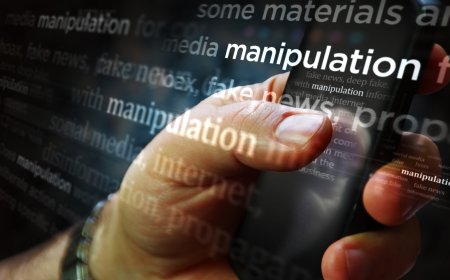The Big Lie
The RT interview came in the midst of a concerted public relations blitz by Hasina and her supporters, which included a number of interviews from the deposed Prime Minister to friendly Indian media outlets.

"If a lie is only printed often enough, it becomes a quasi-truth, and if such a truth is repeated often enough, it becomes an article of belief, a dogma, and men will die for it"
Isa Blagden “The Crown of Life”
Recently, social media has been abuzz after RT (formerly Russia Today) broadcast its exclusive interview with Bangladesh’s former Minister of Education Mohibul Hassan Chowdhury Nowfel.
Likely chosen for his youthful appearance and fluent English skills, Nowfel did not provide any fresh insights into developments in Bangladesh before or since the July Revolution that toppled former Prime Minister Sheikh Hasina and her government.
Where Nowfel succeeded, however, was in reviving the ridiculous “US regime change” narrative that had first emerged in the immediate aftermath of Hasina’s flight from Dhaka and which reached its apogee in the early days of the Trump Administration when it was repeated by prominent individuals linked to the US Republican Party.
The RT interview also came in the midst of a concerted public relations blitz by Hasina and her supporters, which included a number of interviews from the deposed Prime Minister to friendly Indian media outlets.
Ironically, Sheikh Hasina's own most recent statements appear to be belatedly trying to walk back the allegations of US involvement in her ouster that she and her surrogates have been making for over a year, but it would appear that either Nowfel did not get the memo or that the new strategic direction was decided after his interview had aired, with scant concern for how foolish it would make him look.
For RT, Nowfel played the role of a useful idiot, echoing Russia’s attacks against its detractors in the US and in the West who have been critical of its invasion of Ukraine and who have led efforts to sanction Moscow for its actions.
While Russia certainly benefited from its relationship with Hasina and her government, winning lucrative energy and military contracts and gaining diplomatic support, the RT interview focused more on attacking the United States than trying to defend Hasina against her critics.
The former Education Minister, whose controversial role before and during the July Revolution earned him the ire of the students who led the anti-quota (and later anti-Hasina) movement, decided to flee Bangladesh rather than remain in the country and be held accountable for his actions.
Like others before him, Nowfel chose to use the platform provided by RT to recycle a familiar conspiracy theory that linked the July Revolution and Hasina’s fall to an alleged plot involving the Biden, Clinton and Soros families which he claimed was executed by USAID, IRI and other elements of the “Deep State” using rap artists, members of the transgender community, and others.
Nowfel repeated the demonstrably false statement that the US had provided $29 million to two organizations in one year as part of its plot to overthrow Hasina, and he twisted the words of Professor Yunus and others which have been cited to falsely corroborate the conspiracy theory.
Nowfel also claimed that the US motive (beyond putting Yunus in power) was to extract concessions from Bangladesh to establish military bases and win energy contracts.
It is the rhetorical equivalent of asking a defendant in a court proceeding to prove their innocence rather than for the state to prove their guilt. It puts those on the side of defending the truth in the position of having to prove a negative.
This is intended to obscure the reality that Nowfel and others who are peddling the “foreign regime change” theory have produced zero evidence to support their claims, which are all based on innuendo.
Underlying the conspiracy theory is a series of assertions and insinuations based on flawed logic.
For example, they argue that since the United States (or others) may have acted in a certain way in one situation, e.g. well documented efforts to replace the Castro regime in Cuba in the 1960s, then Washington must always work in that way everywhere, including in Bangladesh in 2024.
They repeatedly conflate correlation with causation, e.g. since a small US-funded democracy and governance project provided assistance to some Bangladeshi youths years earlier, then any action by any member of Gen Z must be at Washington’s behest.
And they stretch nuggets of truth to an absurd conclusion, e.g. since the United States has an interest in maritime security in the Indo-Pacific then it must covet a naval base on St. Martins Island (despite the demonstrable reality that the island is totally unsuitable for such a purpose and the US has never expressed interest in a base there or anywhere else in Bangladesh).
Finally, the arguments tap into US domestic political dysfunction to demonize the Biden, Clinton, and Soros families in an attempt to gain traction with elements of the Republican Party and President Trump’s base.
These conspiracy theories have been a central component of the sophisticated and relentless disinformation campaign that has been waged against Bangladesh’s interim government since day one.
While Hasina’s supporters are at the heart of this campaign, it has flourished due to the support provided by elements in the Indian media and establishment and a rogue’s gallery of international paid public relations contractors and lobbyists.
These elements work together to generate content and then spread it through their networks to shape the online narrative regarding Bangladesh. It remains to be seen how effective these efforts are at shaping opinion within Bangladesh, where people have first-hand experience with the excesses of Hasina’s regime.
Clearly, however, the primary audience for Nowfel and others is outside the country, where they hope to shape opinion in India and elsewhere. They count on the fact that few people around the world pay close attention to Bangladesh.
While the efforts to counter this disinformation campaign have been fragmented and often ineffective, for Bangladesh’s interim government, the good news is that the efforts at destabilization and disinformation will not be able to prevent it from completing its objective of holding elections in February 2026.
The next elected government should anticipate, however, that once Professor Yunus and the interim government have left the scene, the disinformation apparatus erected by Hasina and her supporters will simply shift its focus.
The information war will not end in February but will simply evolve in a new direction. The next government better be ready to wage war in this new domain.
What's Your Reaction?














































































